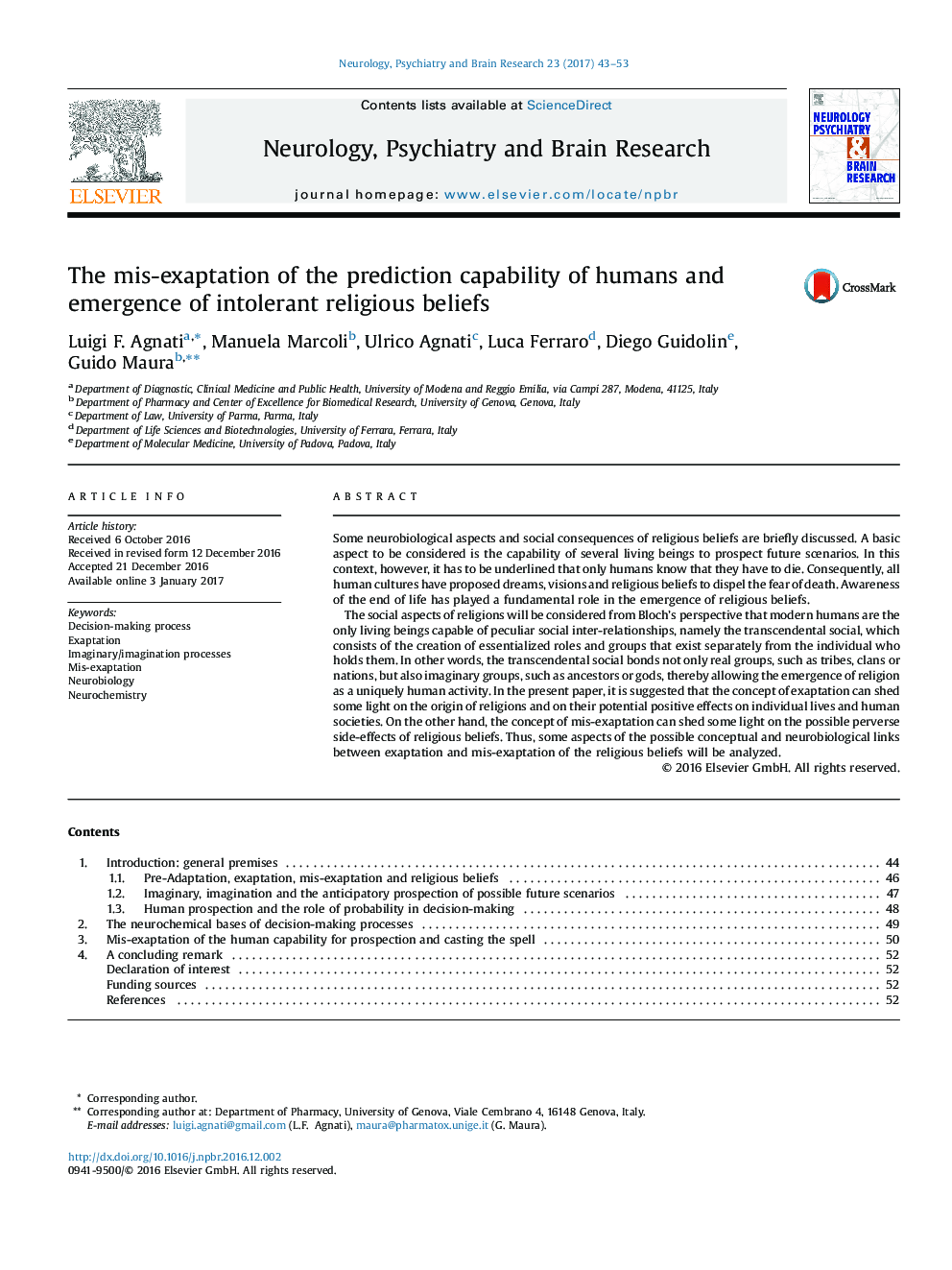| کد مقاله | کد نشریه | سال انتشار | مقاله انگلیسی | نسخه تمام متن |
|---|---|---|---|---|
| 5722476 | 1608283 | 2017 | 11 صفحه PDF | دانلود رایگان |
Some neurobiological aspects and social consequences of religious beliefs are briefly discussed. A basic aspect to be considered is the capability of several living beings to prospect future scenarios. In this context, however, it has to be underlined that only humans know that they have to die. Consequently, all human cultures have proposed dreams, visions and religious beliefs to dispel the fear of death. Awareness of the end of life has played a fundamental role in the emergence of religious beliefs.The social aspects of religions will be considered from Bloch's perspective that modern humans are the only living beings capable of peculiar social inter-relationships, namely the transcendental social, which consists of the creation of essentialized roles and groups that exist separately from the individual who holds them. In other words, the transcendental social bonds not only real groups, such as tribes, clans or nations, but also imaginary groups, such as ancestors or gods, thereby allowing the emergence of religion as a uniquely human activity. In the present paper, it is suggested that the concept of exaptation can shed some light on the origin of religions and on their potential positive effects on individual lives and human societies. On the other hand, the concept of mis-exaptation can shed some light on the possible perverse side-effects of religious beliefs. Thus, some aspects of the possible conceptual and neurobiological links between exaptation and mis-exaptation of the religious beliefs will be analyzed.
Journal: Neurology, Psychiatry and Brain Research - Volume 23, February 2017, Pages 43-53
